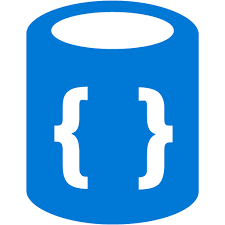
NoSQL Quizzes
NoSQL databases are non-relational systems designed for scalability and flexibility, storing data in formats like documents, key-value pairs, wide columns, or graphs to handle diverse workloads.
Want to create your own quiz?
Enter a topic to auto-generate a quiz instantly.
NoSQL vs SQL Databases: Key Differences Quiz
Test your knowledge of the main distinctions between NoSQL and SQL databases with this easy quiz. Explore concepts such as data models, scalability, structure, and use cases to enhance your understanding of these popular database types.
NoSQL vs. Relational Databases: Use Case & Tradeoff Quiz
Test your understanding of when to use NoSQL or relational databases by exploring differences in scalability, consistency, flexibility, and schema design. This quiz is designed for learners who want to make informed decisions about database technologies based on project requirements and tradeoffs.
Recognizing NoSQL Limitations: Pitfalls and Best Practice Insights
Explore key considerations for when not to use NoSQL databases, including their limitations, potential pitfalls, and best practices for choosing the right data storage solution. This quiz helps clarify scenarios where traditional relational databases may be more appropriate, enhancing your knowledge of database decision-making.
Replication and Sharding Fundamentals in NoSQL Systems
Explore core concepts of replication and sharding in NoSQL systems with this easy quiz. Assess your understanding of data distribution strategies, consistency, and scaling in modern database architectures.
Schema Evolution and Migration in NoSQL Databases Quiz
Explore key concepts and best practices in schema evolution and data migration within NoSQL databases with this easy-level quiz. Assess your understanding of flexible schemas, data consistency, migration challenges, backward compatibility, and more, crucial for modern, scalable database solutions.
Understanding ACID vs BASE Models in NoSQL Transactions
Explore the essential differences between ACID and BASE transaction models in NoSQL databases. This quiz assesses key concepts, behaviors, and real-world scenarios involving consistency, availability, isolation, and durability in NoSQL systems.
Understanding Compound, Multikey, and Geospatial Indexes in NoSQL
Explore essential concepts of indexing in NoSQL databases, focusing on compound, multikey, and geospatial indexes. This quiz helps clarify how different index types work, their purposes, and scenarios where each is most effective.
Wide-Column Databases: Partition Keys, Clustering, and Column Families Quiz
Explore core concepts of wide-column databases in this quiz, focusing on partition keys, clustering, and column families. Enhance your understanding of data organization, access patterns, and key design principles often used in modern scalable data systems.

